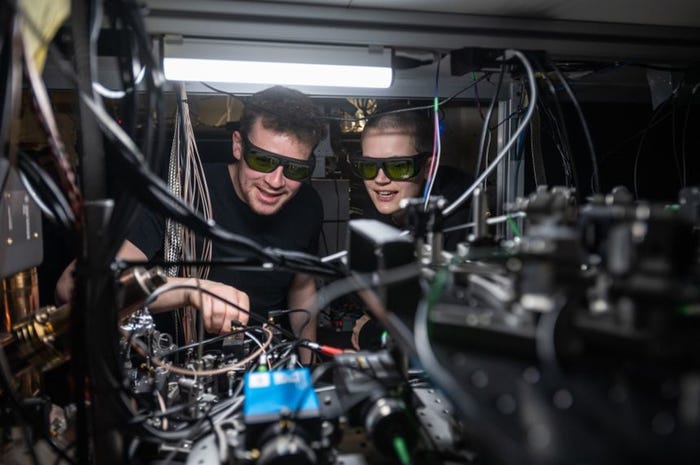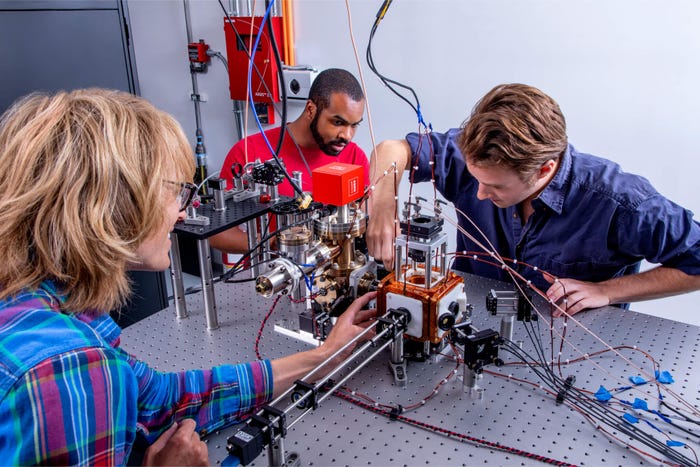
Connects decision-makers and solutions creators to what's next in quantum computing
CERN-Backed Quantum Initiative Tackles Global ChallengesCERN-Backed Quantum Initiative Tackles Global Challenges
Open Quantum Institute targets applications in health, energy, climate action, clean water and food security

The Open Quantum Institute (OQI) has launched at CERN, the European Organization for Nuclear Research, with a mission to develop quantum applications supporting global sustainability.
The launch follows a one-year incubation period led by the Geneva Science and Diplomacy Anticipator (GESDA) supported by multinational bank UBS, the Swiss Federal Department of Foreign Affairs and Swiss academic institutions ETH Zurich and EPFL.
OQI brings together academia, technology companies, the private sector, the diplomatic community, philanthropy organizations and global citizens. It will be part of CERN’s wider Quantum Technology Initiative (QTI), launched in 2020 to explore the full potential of quantum technologies and maximize their societal impact,
With around 180 experts on board, it aims to target more open and inclusive quantum computing to benefit all society through applications that support the United Nations’ Sustainable Development Goals (SDGs). The focus will lie on the selection of SDG-related use cases to explore applications of quantum computing in fields like health, energy, climate action, clean water, and food security.
“CERN offers ideal conditions for the development of the OQI, and my hope is that this initiative will not only be a success, but also a model of what scientific diplomacy can do to promote concrete projects of benefit to humanity,” said CERN director-general Fabiola Gianotti.
“During the pilot phase, the OQI will benefit from CERN’s experience in deploying scientific and technological progress to the benefit of society. We look forward to working with GESDA and other partners from academia, industry and government to ensure that quantum computing is accessible to all, including underserved regions of the world.”
Example quantum computing use cases supporting sustainable development goals that the program could support include improving the sustainability of global food systems through quantum computing optimization, finding quantum machine learning solutions to improve medical imaging accuracy and early diagnosis of diseases and using quantum computing simulation to reduce carbon dioxide in the atmosphere.
“The UN’s SDGs represent the international community’s collective view of what the greatest societal challenges are today,” said Enrica Porcari, head of CERN’s IT department. “This is why we are proud to host the OQI at CERN and to provide a platform for innovation, fostering real-world applications of quantum computing to address the SDGs.”
CERN will host the OQI from 2024 to 2026 and support three or four projects targeting SDG-related use cases then lay the foundation for the next phase of the program.
OQI has invited organizations and individuals to contribute by submitting human-centered use cases for SDGs, developing educational tools and supporting the diplomatic dialogue on quantum computing.
About the Author
You May Also Like






